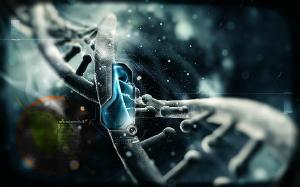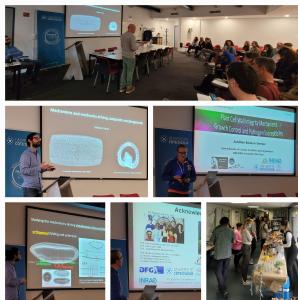Académie d'Excellence "Complexité et diversité du vivant"
Seminar - Neo-Lymphangiogenesis in fibrotic diseases - IPMC Jan16th, 2024 - 14th Academy 4 Research Seminar
- Research
- Science and society
- IDEX
- International
- Health
- Partnerships
- Education
on the January 16, 2024
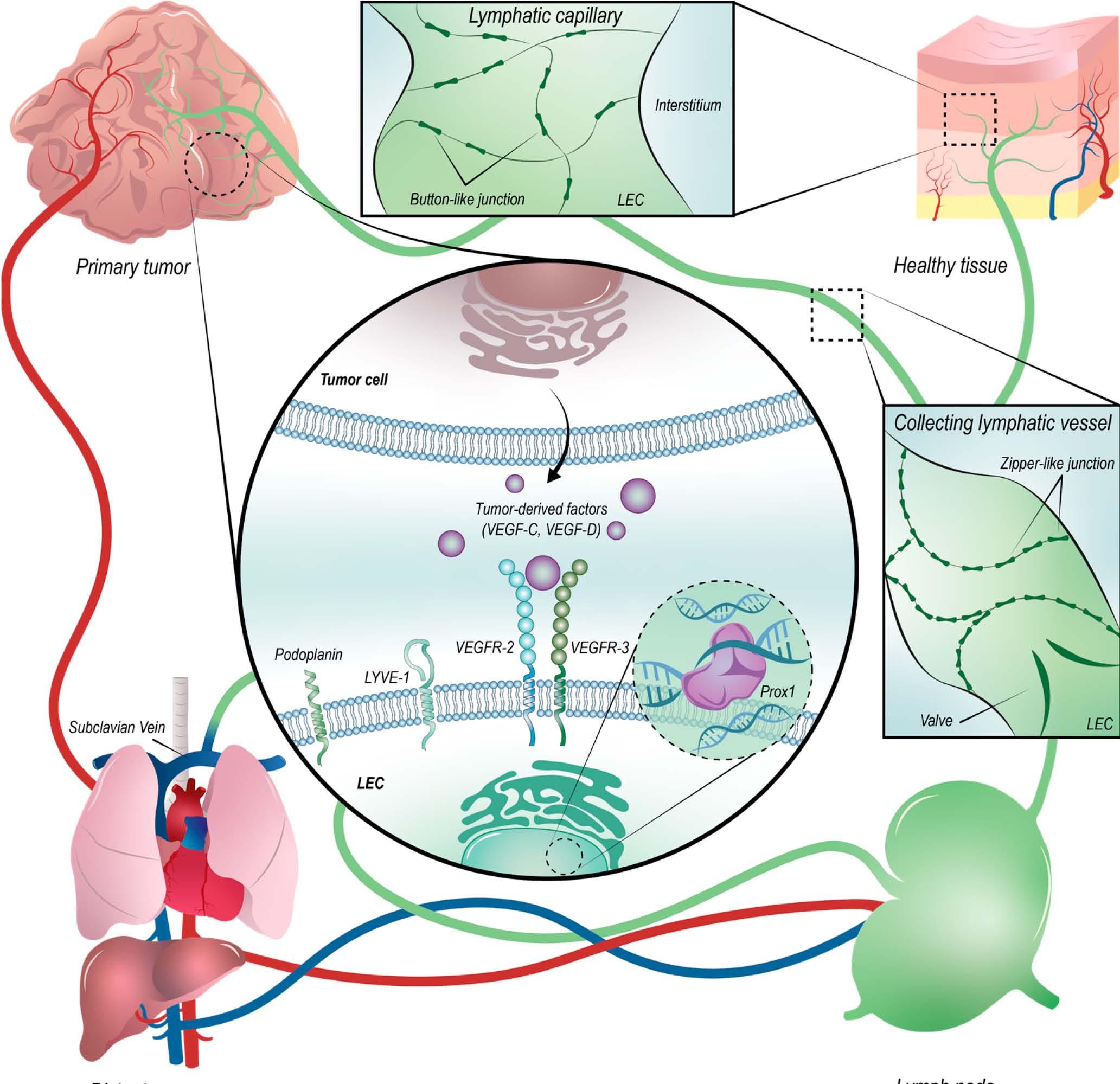
The 16th of january 2024 at 12 pm (noon), at IPMC Sophia-Antipolis, will take place the 14th session of the Academy 4 research seminar entitled "NEO-LYMPHANGIOGENESIS IN FIBROTIC DISEASES".
PROGRAM
Talk 1:
"Fibrosis and lymphatic dysfunction in lymphedema"
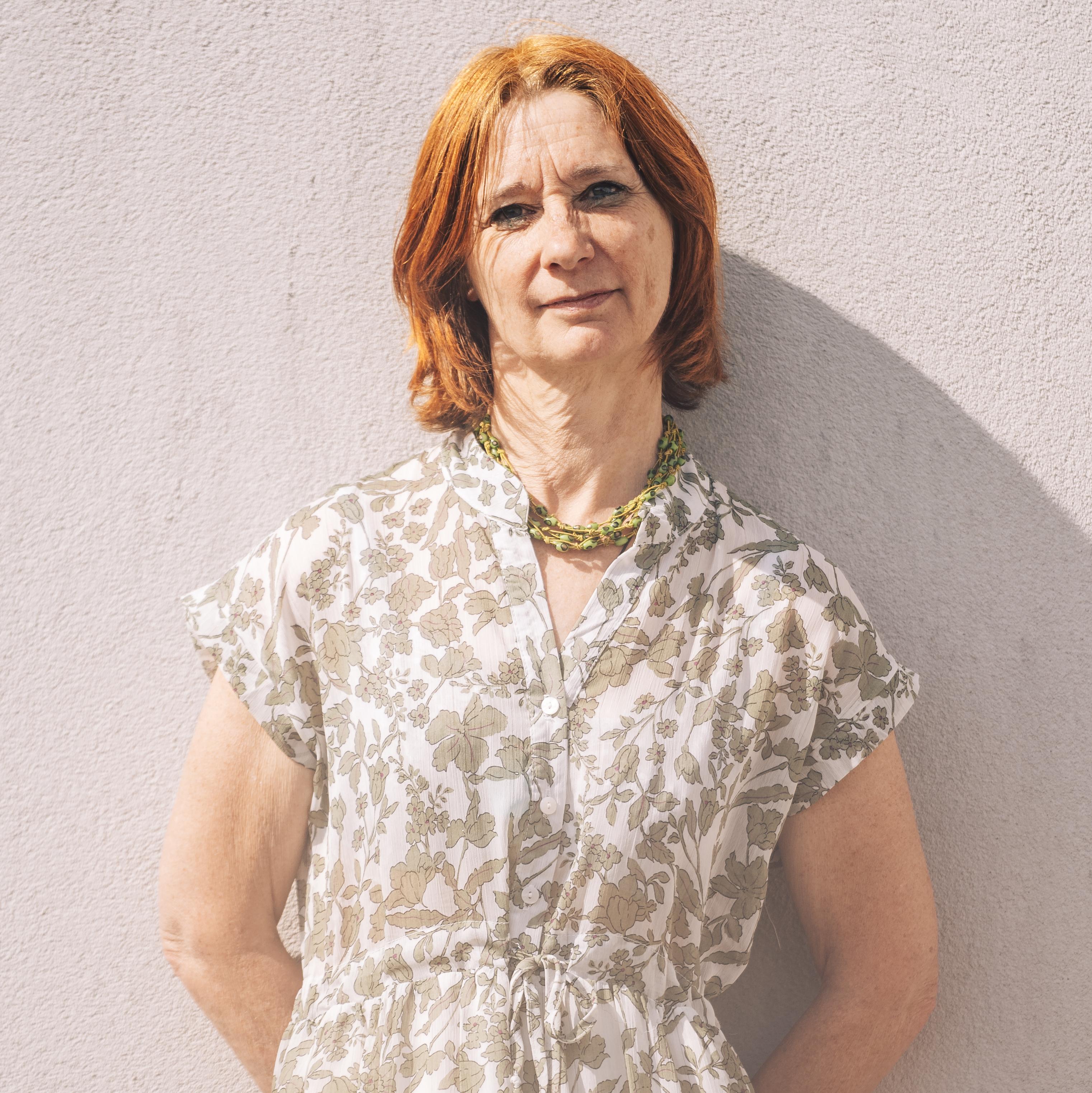
By Pr Agnès NOEL, University of Liège, GIGA, Belgium
Abstract :
Fabrice Gucciardo, Alizée Lebeau, Sébastien Pirson, Jonathan Deroye, Marine Gautier-Isola and Agnès Noel.
Laboratory of Tumor and Development Biology, GIGA-Cancer, University of Liège (ULiège), Sart-Tilman, B-4000, Liège, Belgium.
WELBIO Department, WEL Research Institute, avenue Pasteur, 6, 1300 Wavre, Belgium.
Lymphedema, a chronic and debilitating condition, remains an incurable disorder of the lymphatic vascular system characterized by impaired lymphatic drainage, tissue swelling, fibrosis and recurrent soft tissue infections. Cancer-related interventions (i.e., surgery, radiotherapy) are frequent causes of lymphedema formation. Whether a modulation of both the lymphatic vasculature and its surrounding fibrotic tissue is required or not to improve lymphatic drainage, remains to be explored. To address this question, we harnessed the multifunctionality of urokinase plasminogen activator receptor-associated protein, uPARAP (encoded by the MRC2 gene), a molecule intricately involved in both fibrotic and lymphangiogenic processes. uPARAP's roles span collagen remodeling as a clathrin-dependent endocytic receptor for collagen moieties, and directional cell migration through its association with urokinase (uPA) and its receptor (uPAR). Although primarily expressed by fibroblastic cells and cancer-associated fibroblasts, we previously reported its expression by lymphatic endothelial cells (LECs) (Durré et al, Nature Communication, 2018). In the present study, we used an experimental model of secondary lymphedema induced by limb irradiation and surgery to reproduce the clinical context of patient with a (breast) cancer. Constitutive and LEC-specific uPARAP-deficient mouse models exhibited a unique labyrinthine vasculature pattern with hyperbranched vessels and overlapping cell-cell junctions. This was associated with reduced secondary lymphedema and improve drainage without affecting overall collagen contents. Surprisingly, similar vascular abnormalities were found in conditional and global uPARAP-/- mice highlighting the LEC-specific function of uPARAP in the process. Our findings reveal unexpected specific functions of uPARAP in lymphatics that is independent of its recognized collagen-related function.
Agnes Noel (PhD) is Professor of Molecular and Cellular Biology at the university of Liège (ULiège, Belgium). She is currently Director of the GIGA-Cancer (>100 researchers). She is also co-heading the Laboratory of Biology of Tumor and Development (LBTD) with Professor D. Cataldo, in the GIGA-Cancer. She has been elected to the Royal Academy of Medicine of Belgium and received several national and international awards. She has served as President of the Belgium Society of Cell and Developmental Biology (BSCDB) and a member of the International Proteolytic Society (IPS) board.
Earning a master in Zoology at University of Liège (Belgium), she got her PhD at the same university. She then received a Marie Currie postdoctoral fellowship for a training in molecular biology in Pierre Chambon’s Institut (IGBMC, Strasbourg, France). She provided pioneering evidence that fibroblasts in tumors represent the main source of proteases in the tumor microenvironment. She has gained an internationally recognized expertise in matrix biology, tumor microenvironment and pathological (lymph)angiogenesis. She continuously contributed to the progress in the field of angiogenesis and lymphangiogenesis by setting-up several powerful in vivo models that are widely used (aortic/lymphatic ring assays, the ear sponge assay and recently an in vivo model of lymphedema).
The main interest of her team is currently the study of molecular and cellular mechanisms underlying pathological (tumor, ocular and associated to vascular dysfunction in lymphedema) lymphangiogenesis and metastatic dissemination. Among her recent achievements are (i) the discovery of a novel regulator of lymphangiogenesis, the endocytic uPARAP receptor (Durré et al, Nature Communication, 2018; Gucciardo et al, CMLS, 2022); (ii) the elucidation of the pro-tumoral effects exerted by a sub-population of Cancer- Associated Fibroblasts (CAF) expressing the alpha11 subunit of integrin and PDGFRbeta in breast cancers (Primac et al, JCI, 2019), (iii) the characterization of lymph node remodeling during the metastatic cascade (Gillot et al, CMLS, 2021, 2022).
--------------------
Talk 2:
"Aging and pulmonary fibrosis: the microvascular trail?"
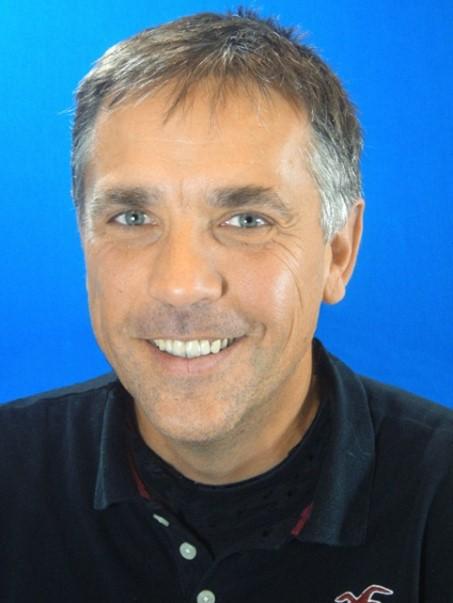
By Dr Bernard MARI, DR CNRS, IPMC
660 route des lucioles SOPHIA ANTIPOLIS 06560 VALBONNE
IPMC website : https://www.ipmc.cnrs.fr/cgi-bin/site.cgi
Abstract:
Marin Truchi1, Grégoire Savary2, Marine Gautier-Isola1, Hugo Cadis1, Virginie Magnone1, Julien Fassy1, Véronique Hofman3, Charles-Hugo Marquette4, Paul Hofman3, Pascal Barbry1, Sylvie Leroy1,4, Christelle Cauffiez2, Kevin Lebrigand1, Georges Vassaux1, Nicolas Pottier2* and Bernard Mari1*#
1Université Côte d'Azur, CNRS UMR7275, IPMC, FHU-OncoAge, IHU RespiERA, Valbonne, France
2Univ. Lille, CNRS, Inserm, CHU Lille, Institut Pasteur de Lille, UMR9020 CNRS - U1277 Inserm -CANTHER, Lille, France.
3Université Côte d’Azur, Laboratory of Clinical and Experimental Pathology and Hospital-Integrated Biobank (BB-0033-00025), CHU Nice, FHU OncoAge, IHU RespiERA, Nice, France
4Département de Pneumologie, FHU-OncoAge, IHU RespiERA, CHU-Nice, France
Lung regeneration is hampered by aging, which increases susceptibility to pathologies such as fibrosis. I will present our recent data presenting a whole picture of cell dynamic changes in lungs from young and aged mice during fibrosis formation and resolution, using notably a combination of single-cell and spatial transcriptomics. We found that transcriptomic alterations in specific cell subpopulations correlated with a delayed fibrosis resolution in aged mice. In particular, we characterized the appearance of pro-angiogenic pulmonary capillary endothelial cells (PCEC) subpopulations associated with the alveolar regeneration process. In aged mice, recruitment of these PCEC subpopulations is delayed whereas in human IPF biopsies, these pro-angiogenic progenitors are not detected, suggesting that age-associated transcriptomic alterations in specific PCEC subpopulations may interfere with the lung progenitor differentiation associated with a normal repair process and contribute to the persistent fibrotic process typical of the human pathology.
Bernard Mari (PhD) is research director at the Centre National de la Recherche Scientifique (CNRS, France). He has obtained a Ph.D at the University of Nice (1994) and performed a post-doctoral training at the Dana Farber Cancer Institute in Boston in the field of lung cancer. His team at IPMC in Sophia Antipolis mainly focuses on functional genomics approaches to understand the function of non-coding RNAs in chronic lung diseases with a special focus on tumorigenesis and fibrosis.
--------------------
Talk 3
"Deciphering the lung alveolar capillary endothelium repair process at the spatial and single-cell level"
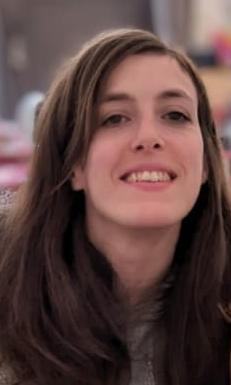
By Dr Marine ISOLA, Postdoct Université Côte d'Azur IPMC
660 route des lucioles SOPHIA ANTIPOLIS 06560 VALBONNE
IPMC website : https://www.ipmc.cnrs.fr/cgi-bin/site.cgi
Abstract:
I was awarded a UCAJEDI 2023 Young Researcher Excellence Grant from the Université Côte d'Azur, focusing on the continuation of this project. I notably propose to perform a kinetic study in young and old mice in a persistent fibrosis model compared to the reversible fibrosis model. The appearance of PCEC subpopulations and the comparative transcriptomic signature will be studied by single cell RNA sequencing and spatial transcriptomic approaches. The signature of targets, including coding and non-coding transcripts, involved in alveolar regeneration will be determined. Biological relevance of the best candidates in mice will be revealed though functional analysis in alveolar organoids. Then, human relevance in the context of IPF will be realized using 3D human Precision-Cut Lung Slice (hPCLS) models. Finally, this 3D human fibrosis model will be used for preclinical pharmacological testing via several strategies such as antisense oligonucleotide (ASO) delivery against the target signature.
Marine GAUTIER-ISOLA (PhD) is a postdoctoral researcher at Université Côte d’Azur (IDEX UCAJ.E.D.I fellowship). She obtained a Ph.D at the University of Nice (2020) in the Bernard Mari’s team about long non coding RNAs in pathological tumor microenvironment and performed a post-doctoral training at the GIGA Cancer in Liege in the field of pathological lymphangiogenesis in fibrosis disease and cancer dissemination. Since October 2023, she recruited in the Bernard Mari to investigate the role of endothelium in the pulmonary fibrosis regeneration.
--------------------
ORGANIZERS:
Academy of Excellence 4 "Complexity & Diversity of the Living Systems"
Graduate School and Research LIFE - Life and Health Sciences
Graduate School and Research HEALTHY - Health Science Ecosystems
PARTNERS
Academy of Excellence 5 "Human Societies, Ideas and Environments"
Institute NeuroMod - Cognitive Systems, Normality and Pathology of the Human Brain and Computational Neurosciences
Labex SIGNALIFE - Network for Innovation on Signal Transduction Pathways in Life Sciences
Graduate School and Research HEALTHY - Health Science Ecosystems


















